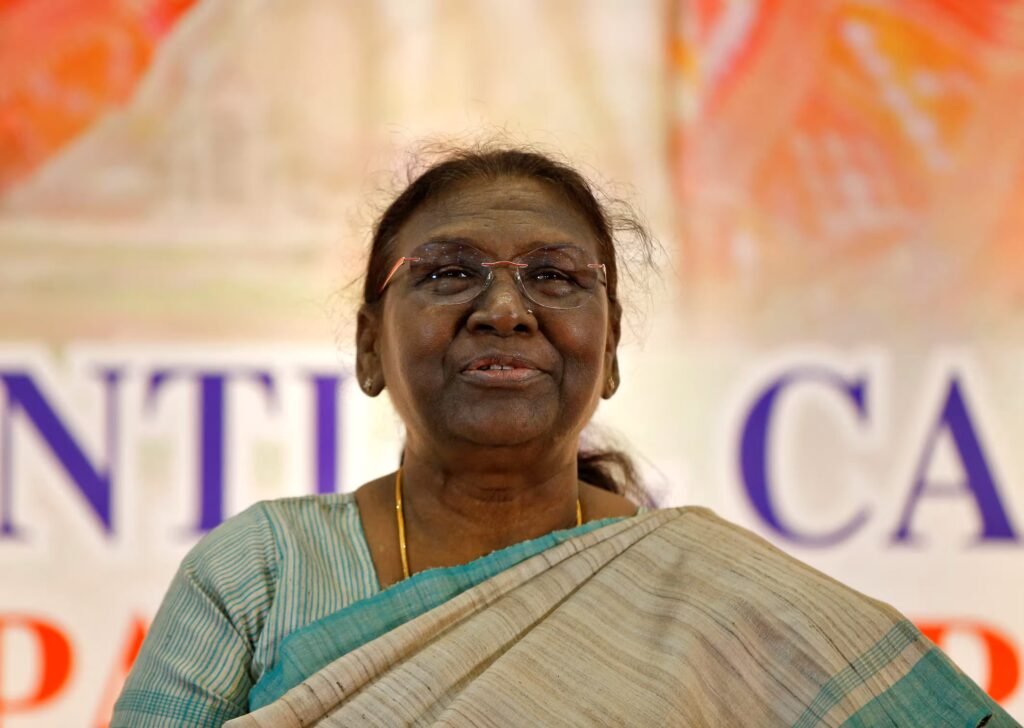President Droupadi Murmu has appointed six new governors and ordered reshuffles in three states, including Punjab and Assam. This move is part of the ongoing efforts to bolster governance and ensure effective administrative oversight across India’s diverse states. The appointments and reshuffles reflect a strategic approach to address regional challenges and leverage experienced leadership.
New Appointments
1. Ramesh Bais – Maharashtra: Ramesh Bais, previously the Governor of Jharkhand, has been appointed as the Governor of Maharashtra. Bais, a seasoned politician with extensive experience in legislative affairs, is expected to bring a wealth of knowledge and a steady hand to the state’s administration. His tenure in Jharkhand was marked by efforts to enhance state-federal cooperation and address developmental challenges.
2. Anusuiya Uikey – Chhattisgarh: Anusuiya Uikey, who served as the Governor of Manipur, will now take on the role of Governor of Chhattisgarh. Known for her advocacy for tribal rights and welfare, Uikey’s appointment is seen as a strategic move to address the state’s socio-economic issues, particularly those affecting its tribal population.
3. La. Ganesan – Nagaland: La. Ganesan, previously the Governor of West Bengal, has been appointed as the Governor of Nagaland. Ganesan’s experience in navigating complex political landscapes and his diplomatic skills will be crucial in dealing with the state’s unique socio-political challenges, including the ongoing peace process with various insurgent groups.
4. Rajendra Arlekar – West Bengal: Rajendra Arlekar, who served as the Governor of Himachal Pradesh, will now govern West Bengal. Arlekar’s tenure in Himachal Pradesh was marked by efforts to improve governance and infrastructure development. His appointment in West Bengal is expected to focus on enhancing administrative efficiency and addressing the state’s developmental needs.
5. Bandaru Dattatreya – Jharkhand: Bandaru Dattatreya, previously the Governor of Himachal Pradesh, has been appointed as the Governor of Jharkhand. Dattatreya’s experience in labor and employment issues, coupled with his administrative acumen, is anticipated to benefit Jharkhand, a state with significant industrial and labor concerns.
6. Haribabu Naik – Mizoram: Haribabu Naik, a seasoned politician and former Member of Parliament, has been appointed as the Governor of Mizoram. Naik’s deep understanding of Northeast India and his experience in public service are expected to aid in addressing the region’s unique challenges, including infrastructure development and ethnic harmony.
Reshuffles
Punjab: Banwarilal Purohit, the current Governor of Punjab, will continue to serve in his role, providing continuity in governance. Purohit’s experience and leadership have been instrumental in addressing the state’s complex political and economic landscape. His continued presence is expected to ensure stability and progressive development in Punjab.
Assam: Prof. Jagdish Mukhi, the Governor of Assam, has been retained in his position. Mukhi’s tenure has been marked by significant strides in improving the state’s socio-economic indicators and managing complex issues related to immigration and ethnic diversity. His continued leadership is seen as crucial for maintaining the state’s progress and addressing ongoing challenges.
Sikkim: Ganga Prasad, the Governor of Sikkim, will continue in his role. Prasad’s efforts in promoting tourism and sustainable development in Sikkim have been noteworthy. His reappointment is likely to further the state’s goals in eco-tourism and balanced growth.
Strategic Implications
The appointments and reshuffles signify a strategic alignment aimed at enhancing governance across states with diverse and unique challenges. By appointing experienced and capable leaders, President Murmu aims to address regional disparities, promote development, and ensure effective administration. The focus on continuity in states like Punjab, Assam, and Sikkim underscores the importance of stable leadership in achieving long-term developmental goals.
Moreover, the new appointments reflect a careful consideration of the appointees’ backgrounds and expertise, aligning them with the specific needs of the states they will govern. This strategic deployment of leadership is expected to foster greater federal-state cooperation, improve governance, and address the socio-economic challenges faced by these states.
President Murmu’s decision to appoint six new governors and reshuffle leadership in three states marks a pivotal moment in India’s administrative landscape. These changes are poised to bring in experienced and capable leaders who can address the unique challenges of their respective states. With a focus on strategic governance and developmental progress, these appointments are expected to enhance the overall administrative efficacy and contribute to the nation’s growth and stability.


